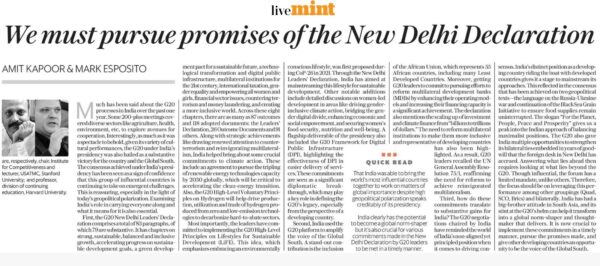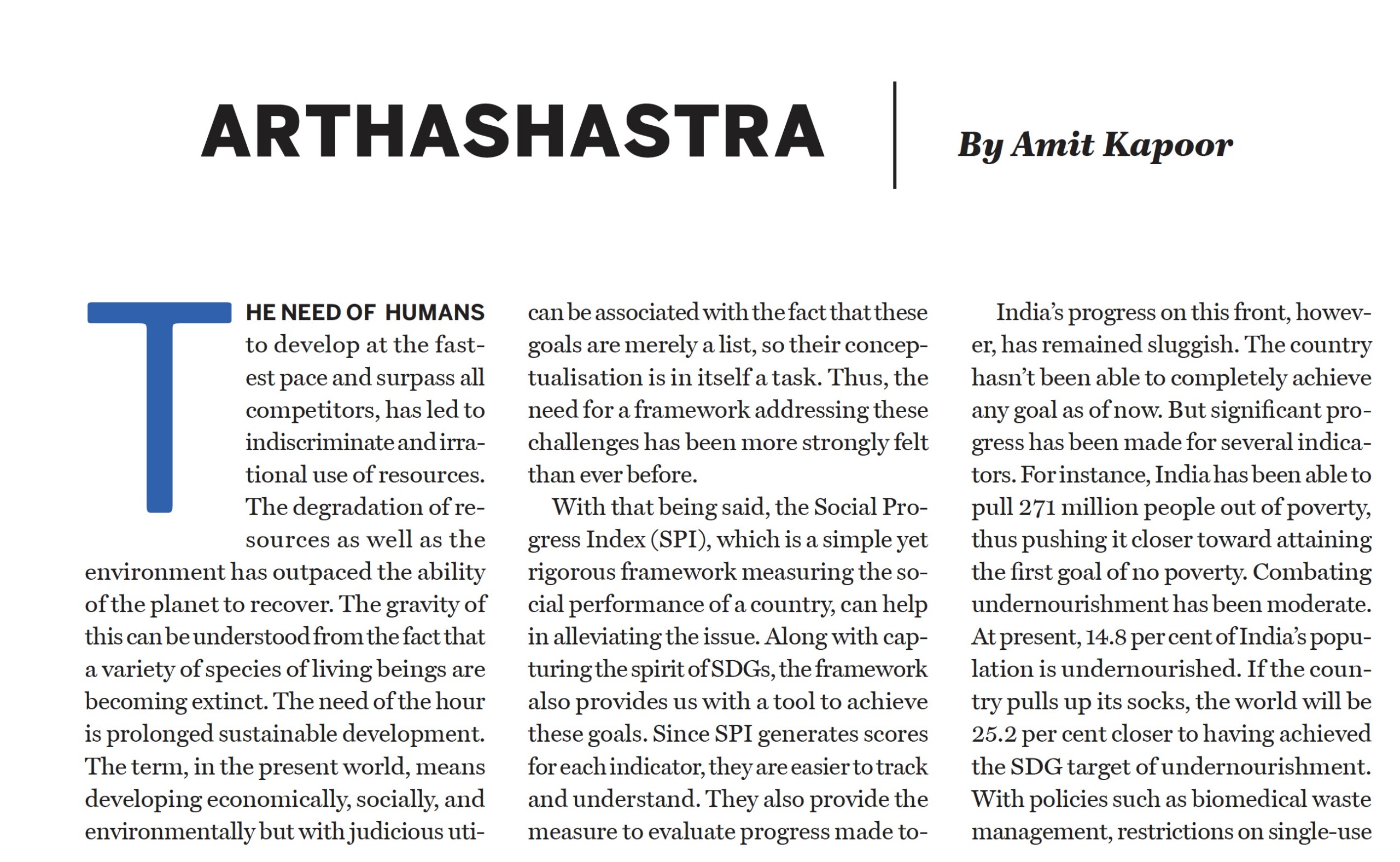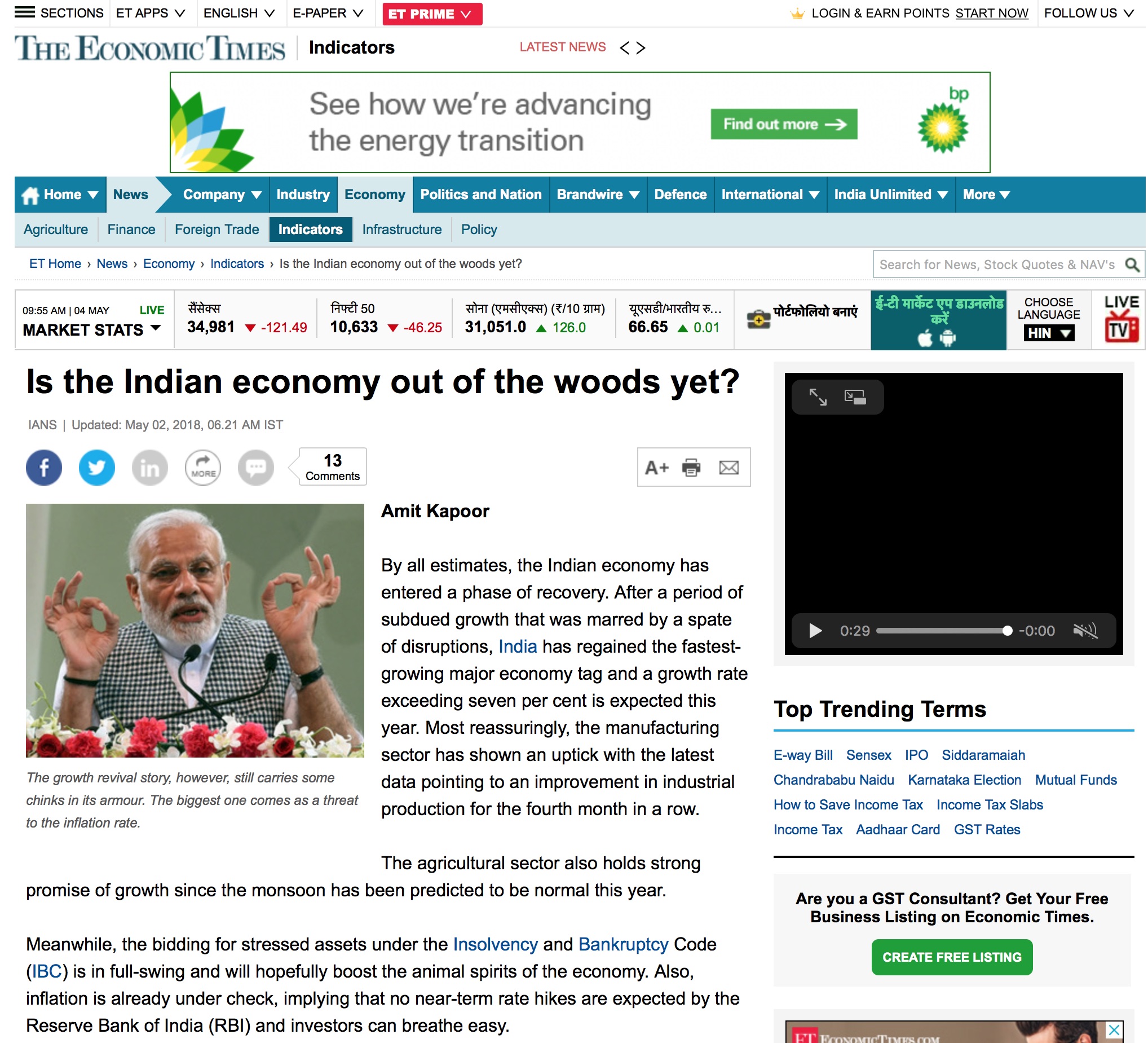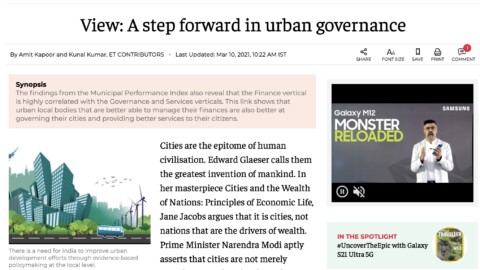Much has been said and written about G20 processes in India over the past one year. The 200+ meetings covered diverse sectors like agriculture, health, environment, anti-corruption, etc, to explore and strengthen avenues for collective action and cooperation among influential economies of the world accounting for 80% of the global GDP. Interestingly, as much as it was a spectacle to behold through the various cultural performances, G20 under India’s presidency is also heralded as a substantive victory for the country and the global south. Consensus achieved by G20 under India’s chairship has been seen as a sign of confidence that the group of these influential countries (which include the UNSC P5, the G7 and the BRICS) continue to interact, engage and hope to cooperate against the emergent challenges. This is reassuring, especially in the light of polarising geopolitical situations. Examining India’s role in facilitating this and carrying everyone along and what it means for the country as it grapples with internal challenges is also essential. For ease of explanation, the argument put forward is divided into three parts – dissecting the New Delhi Leaders’ Declaration, how it helps position India as the leader of the global south, and what lies ahead for us. The line of reasoning is fairly simple – India has been successful in leveraging the influence of G20 to bring its own thinking to the global stage. All that remains to see is how it helps us in the long run.
First, the G20 New Delhi Leaders’ Declaration consists of a total of 83 paragraphs, out of which 79 paragraphs are substantive in nature. The declaration contains chapters on strong, sustainable, balanced and inclusive growth, accelerating progress on sustainable development goals, green development pact for a sustainable future, multilateral institutions for the 21st century, technological transformation and digital public infrastructure, international taxation, gender equality and empowering all women and girls, financial sector issues, countering terrorism and money laundering, and creating a more inclusive world. Across these eight chapters, the declaration has as many as 87 outcomes and 118 adopted documents, including the Leaders’ Declaration, 26 Outcome Documents and 91 other agreed documents. Along with strategic achievements like bringing renewed attention to counter-terrorism and reinvigorating multilateralism, India brought some crucial commitments in the environment and climate sector. This includes an agreement on pursuing efforts towards tripling the renewable energy technologies capacity by 2030 globally, which will be critical to accelerating the clean energy transition. In another instance, G20 High-Level Voluntary Principles on Hydrogen will help drive the production, utilization, and global trade of hydrogen produced from zero and low-emission technologies in efforts to decarbonize hard-to-abate sectors and achieve carbon neutrality.
Most importantly, the leaders have committed to implementing the G20 High-Level Principles on Lifestyles for Sustainable Development (LiFE). The idea of ‘Lifestyle for Environment’ was first proposed during the COP26 Summit in 2021, emphasizing on the idea of embracing an environmentally conscious lifestyle. Through the G20 New Delhi Leaders’s Declaration, India has aimed at mainstreaming this as lifestyles for sustainable development. Other notable additions include detailed discussions on women-led development in sectors like driving gender-inclusive climate action, bridging the gender digital divide, enhancing economic and social empowerment, and securing women’s food security, nutrition and well-being. A flagship deliverable of the presidency also included the G20 Framework for Digital Public Infrastructure (DPI), highlighting the effectiveness of DPI in enabling easier access and delivery of services through public and private sector solutions. These commitments are seen as a significant diplomatic breakthrough which may play an important role in defining the legacy of G20, especially from the perspective of a developing country.
Second, India has used the G20 platform as a means to amplify the voice of the global south. The most stand-out contribution remains the inclusion of the African Union, which represents 55 African countries that include many Least Developing Countries (LDCs). Moreover, getting G20 leaders to commit to pursuing efforts for achieving better, bigger and more effective MDBs by enhancing their operating models and increasing financing capacity to maximize developmental impact is a significant achievement for developing countries. The declaration also mentions scaling up investment and climate finance from “billions to trillions of dollars”. There has also been a concerted attempt to highlight the need to reform multilateral institutions to make them more inclusive and representative of developing countries. As a result, the Leaders have recalled the UNGA Resolution 75/1, reaffirming the need for reforms to achieve a reinvigorated multilateralism.
The aforementioned discussion takes us to our third part – how these commitments translate into substantive gains for India. The G20 negotiations chaired by India have reminded the world of India’s non-aligned yet principled position when it comes to driving consensus. India’s distinct position as a developing country riding the boat with developed countries gives the country a stage to mainstream its thoughts and approaches. This was proven through the consensus that has been achieved on two geopolitical texts – the language on Russia and Ukraine war as well as on the continuation of the Black Sea Grain Initiative for ensuring that food supplies remain uninterrupted. “For the Planet, People, Peace and Prosperity”gives us a peak into the Indian sentimentality of balancing maximalist positions. G20 also gave India multiple opportunities for restrengthening its bilateral ties embedded in years of good will that the foreign desk in New Delhi has accrued. Answering what lies ahead then is also to look at what lies beyond G20. Although influential, the forum has a limited mandate like any other multilateral forum. Therefore, the focus should be on leveraging this performance among other groupings (QUAD, SCO, BRICS) and bilaterally. India has always demonstrated a big-brother attitude in South Asia, and its stint as the G20 Presidency can help it transform into a global norm-shaper and thought-maker that delivers. It is crucial to implement its commitments timely, pursue the promises made, and give other developing countries the opportunity to be the voice of the global south.
The article was published with Mint on November 3, 2023.






















